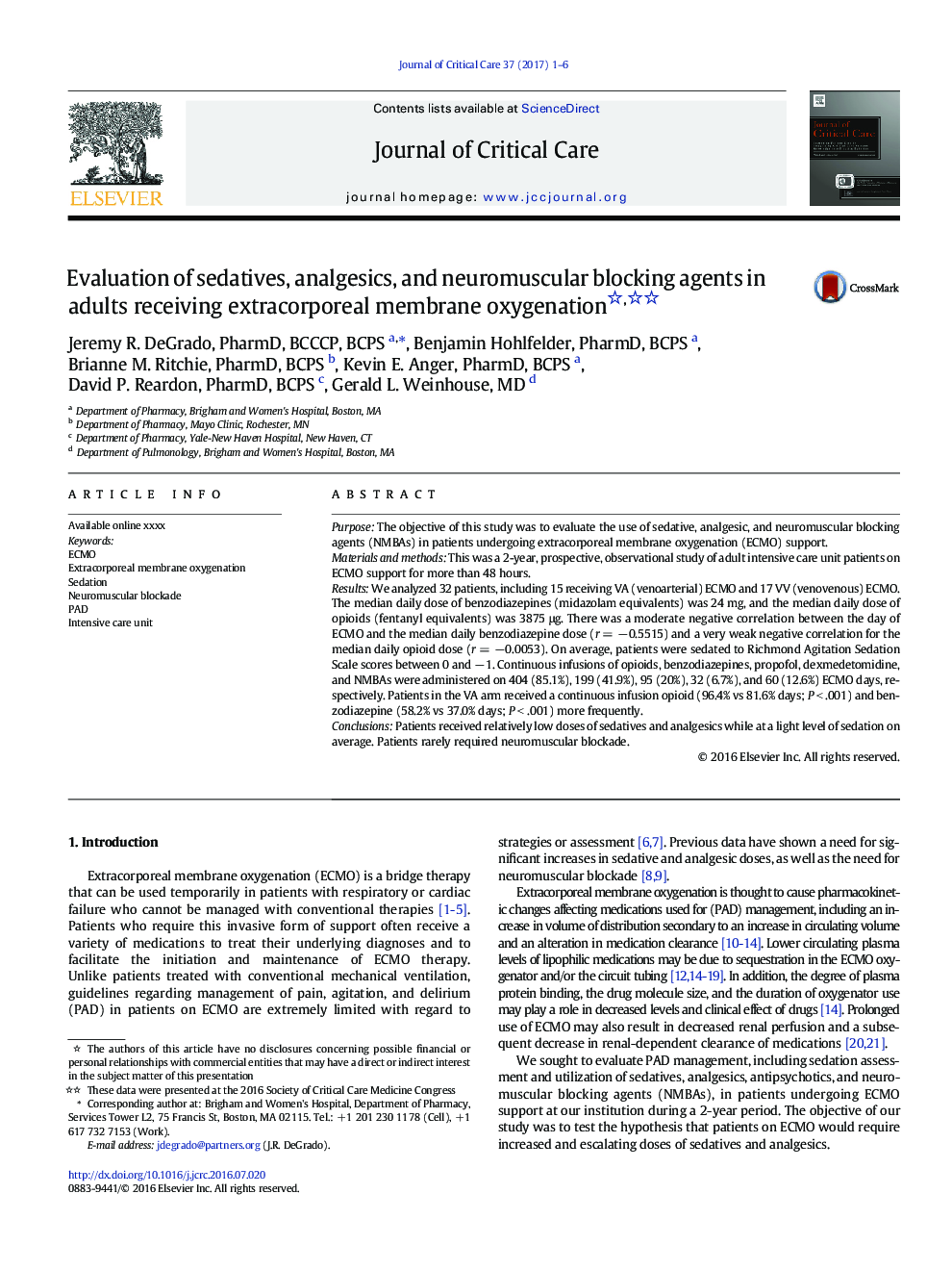| Article ID | Journal | Published Year | Pages | File Type |
|---|---|---|---|---|
| 2764299 | Journal of Critical Care | 2017 | 6 Pages |
PurposeThe objective of this study was to evaluate the use of sedative, analgesic, and neuromuscular blocking agents (NMBAs) in patients undergoing extracorporeal membrane oxygenation (ECMO) support.Materials and methodsThis was a 2-year, prospective, observational study of adult intensive care unit patients on ECMO support for more than 48 hours.ResultsWe analyzed 32 patients, including 15 receiving VA (venoarterial) ECMO and 17 VV (venovenous) ECMO. The median daily dose of benzodiazepines (midazolam equivalents) was 24 mg, and the median daily dose of opioids (fentanyl equivalents) was 3875 μg. There was a moderate negative correlation between the day of ECMO and the median daily benzodiazepine dose (r = −0.5515) and a very weak negative correlation for the median daily opioid dose (r = −0.0053). On average, patients were sedated to Richmond Agitation Sedation Scale scores between 0 and −1. Continuous infusions of opioids, benzodiazepines, propofol, dexmedetomidine, and NMBAs were administered on 404 (85.1%), 199 (41.9%), 95 (20%), 32 (6.7%), and 60 (12.6%) ECMO days, respectively. Patients in the VA arm received a continuous infusion opioid (96.4% vs 81.6% days; P < .001) and benzodiazepine (58.2% vs 37.0% days; P < .001) more frequently.ConclusionsPatients received relatively low doses of sedatives and analgesics while at a light level of sedation on average. Patients rarely required neuromuscular blockade.
